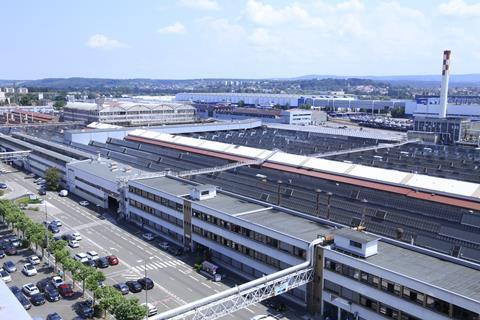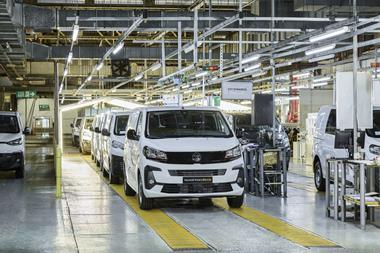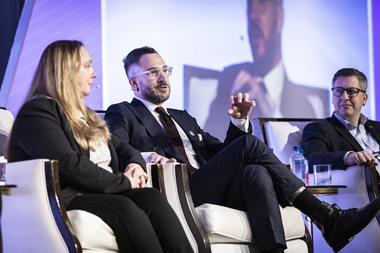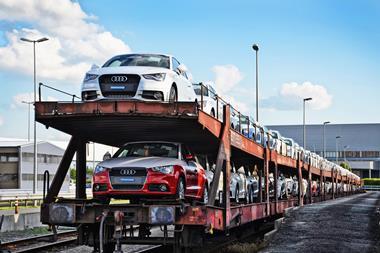Stellantis is looking to take more control of its outbound finished vehicle logistics through buying more freight assets.
Maxime Picat, chief purchasing and supply chain officer at Stellantis told Automotive Logistics in an exclusive interview that the carmaker had learned lessons from outbound capacity issues over the last few years.

“What we have learned is that not controlling anything was not good enough, because our capacity to react was absolutely limited,” Picat said. “We’ve identified that we cannot manage outbound logistics like we manage inbound logistics or some other commodity.”
He said that following recent supply chain crises since Covid, outbound capacity took “far longer” to return to normal levels in fact, he said the capacity is still not back to pre-crisis level, although costs are starting to reduce.
The carmaker has since made some moves to acquire more direct vehicle logistics capacity. Back in December, Stellantis announced that it had entered into exclusive negotiations with a view to acquire a majority stake in French transport and logistics services firm 2L Logistics. The planned transaction is expected to be completed by the end of the first quarter of this year.
Picat confirmed that such moves are part of wider moves to gain capacity in Europe. “In outbound logistics – the final step to our final customer which is very critical to our revenue – to be blind and not to have the capacity is an issue,” Picat said. ”We have started to fix it and look at where there are some inefficiencies, or lack of capacities or risk, maybe in countries where we’ve got big business, but less assets available. That’s where we made some moves to ensure that it’s part of the business that we can better control.”
Stellantis already did own some direct logistics capacity. In Italy, its i-Fast division has a fleet of car carrier truck for finished vehicle distribution, which belonged to FCA prior to the merger with PSA that would form Stellantis. However, Stellantis had largely unwound assets and access to more direct control of logistics assets that it used to have in Gefco, which used to be owned by PSA Group. Gefco had a mix of inbound and vehicle logistics assets, as well as logistics engineering capabilities. PSA sold a major stake in the logistics company in 2012 to Russian Railways, and maintained exclusivity contracts with the logistics providers for around a decade.
In April 2022, however, after the exclusive contract ended, Stellantis sold the remaining 25% stake that it had in Gefco to CMA CGM Group, which has since merged the logistics company with Ceva Logistics.
READ THE FULL INTERVIEW WITH MAXIME PICAT, STELLANTIS HERE
Picat added that Stellantis would not try to acquire or directly manage its full capacity requirements for logistics, but would seek more control. “It doesn’t mean we want to control everything and verticalise everything, but there are some elements that cannot be 100% out of our reach,” he said. ”We need to have a minimum level of control, and that’s what we try to size up and optimise and do it wisely on a case-by-case basis.”

























![Global[1]](https://d3n5uof8vony13.cloudfront.net/Pictures/web/a/d/s/global1_726550.svgz)













No comments yet